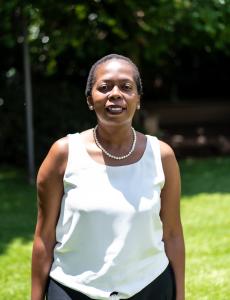For the second time since 2011 and 2012, Germany and South Africa served together as elected members of the UN Security Council in 2019 and 2020. In 2020, both countries also held regional leadership positions in the European Union (EU) and the African Union (AU) respectively. With rising geopolitical tensions among the great powers, regional powers are attributed an important but difficult role: facilitating effective multilateralism in a time of increasing tensions and further fragmentation of global governance institutions. As liberal democracies, regionally leading countries and economically dominant powers, they are theoretically predestined to leave a constructive imprint on global politics. However, the role and influence of the elected members (E10) also depend on their ability to seek and craft consent on controversial issues, not only in relation to veto-holding powers but also among themselves. This paper evaluates how Germany and South Africa have managed their term in the Security Council. Have both countries been able to craft a stronger E10 partnership, or have persisting great power rivalries and disparate national interests and values distanced the two countries from one another? What opportunities for enhanced cooperation have emerged and in which areas do fundamental differences remain?
Germany and SA in the UNSC download



